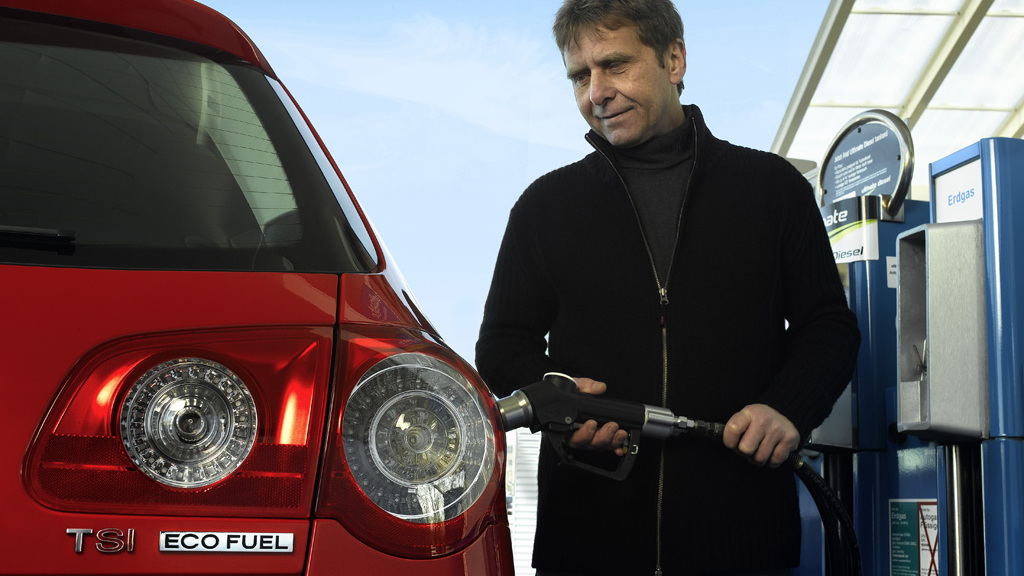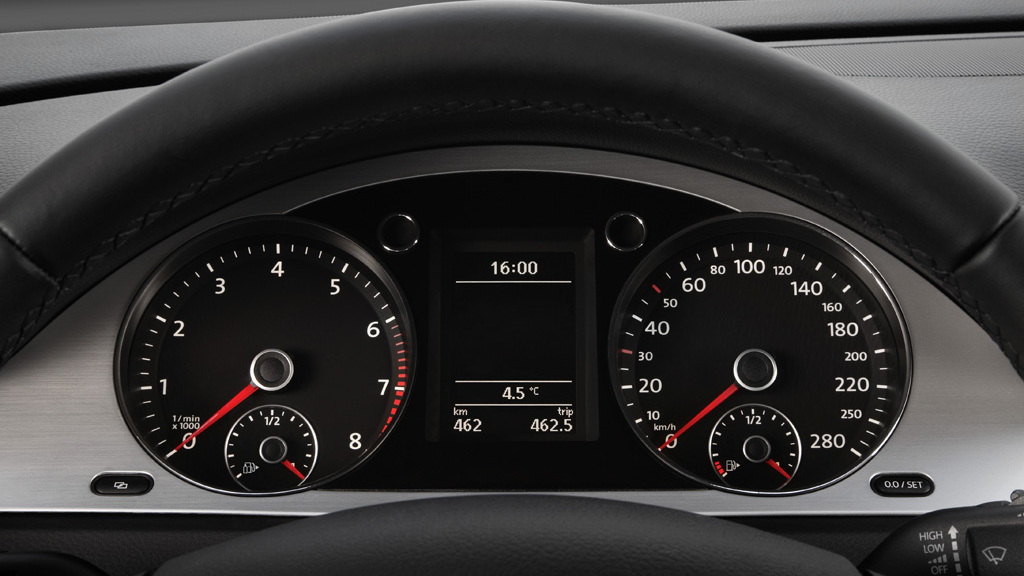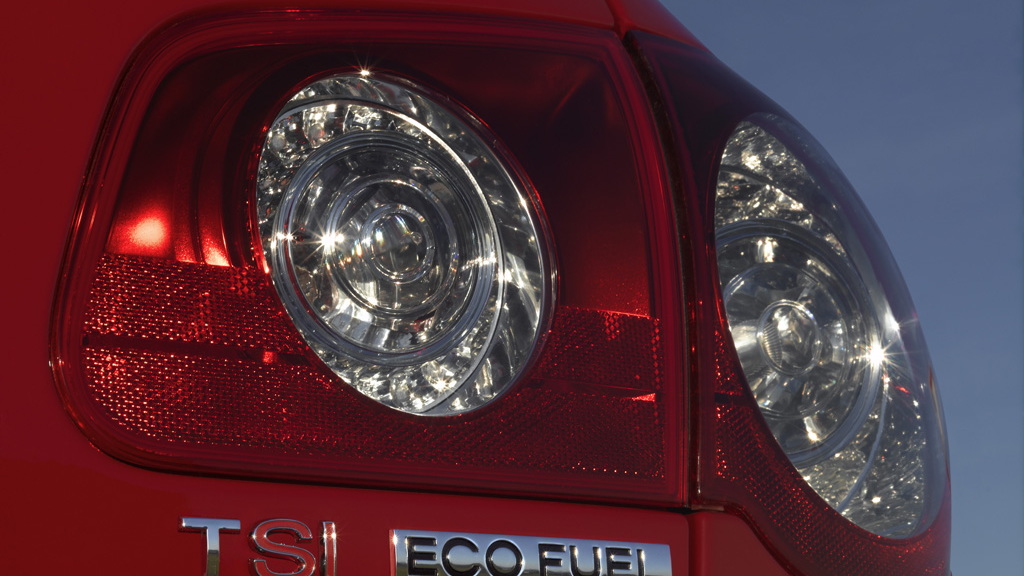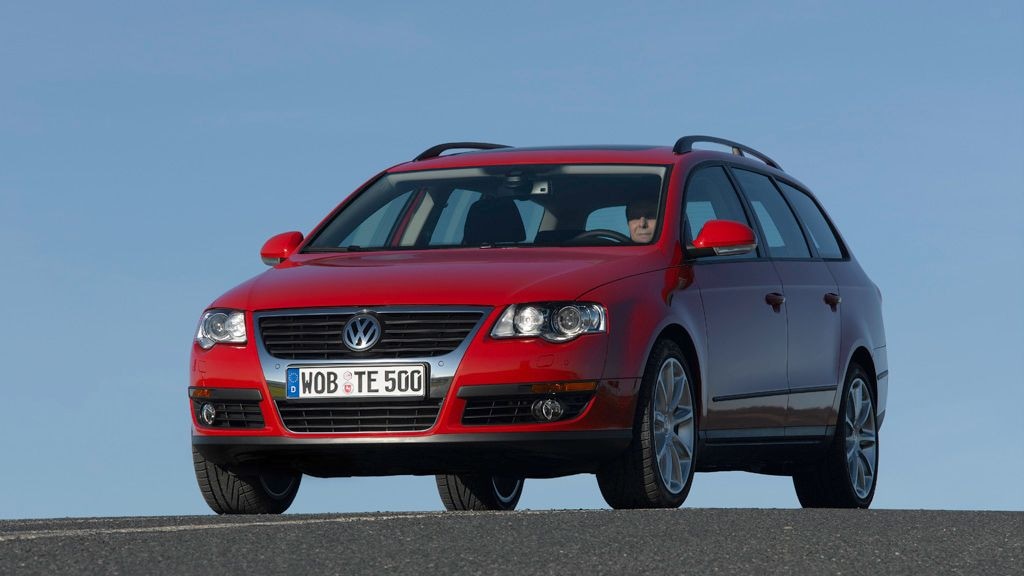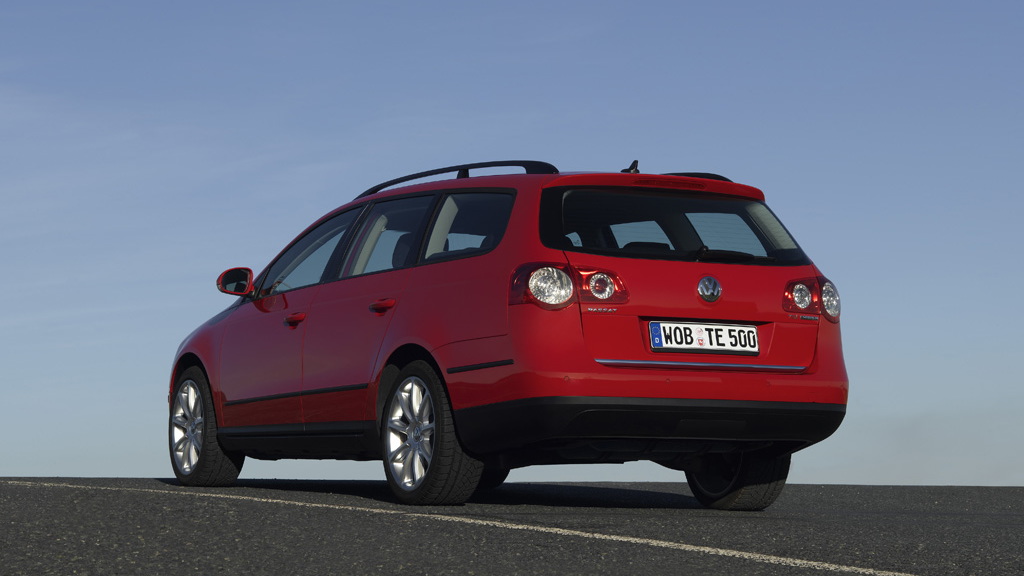In order to allow the engine to cope with the additional loading encountered through the burning of natural gas rather than gasoline, significant changes have been made. The valves, piston rings and the pistons themselves are all uprated to cope, while the turbocharger has also been replaced with a smaller unit. Controlling the switch between conventional fuel and natural gas is a new engine management computer.
The natural gas is stored in a trio of tanks with a combined capacity of 22kg mounted beneath the trunk. This is supplemented by a 31L tank for conventional petrol. Between the two tanks, the Passat TSI EcoFuel is afforded a theoretical range of around 500 miles (800km).
The car has a top speed of 130mph and the capability to accelerate from 0 to 62mph in 9.8 seconds, making it viable for everyday use. In normal conditions the vehicle consumes 4.5kg of natural gas every 100km. With a DSG dual-clutch gearbox in place, the Passat EcoFuel will emit less than 120g of CO2/km, about the same as a much smaller compact hatch. VW is yet to announce any production plans for its EcoFuel technology, but given its excellent fuel-economy the wait shouldn't be long.
